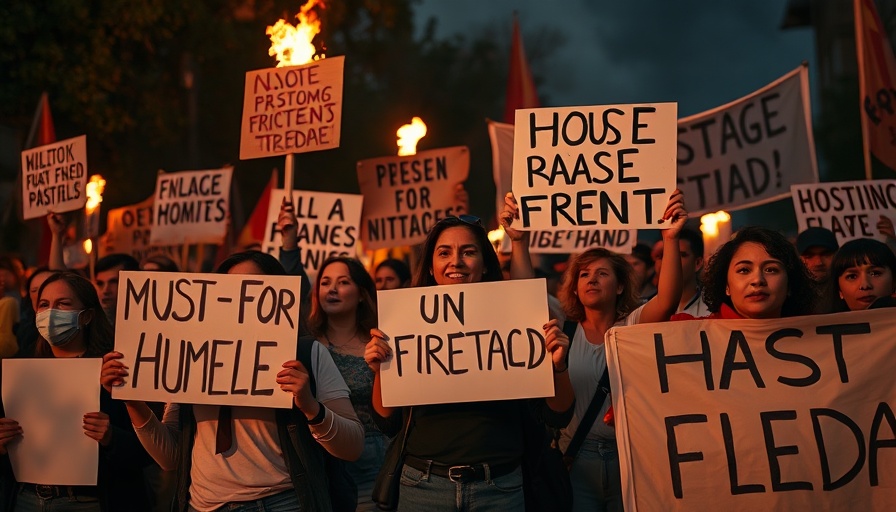
The Humanitarian Crisis in Gaza Deepens Amidst Aid Blockade
Despite an initial flurry of activity in aid deliveries, the situation in Gaza remains dire. Recently, the United Nations announced that no aid has been distributed to the people on the ground, even as 93 trucks loaded with crucial supplies crossed into the territory. This development comes after an 11-week blockade that left many vulnerable to acute hunger and suffering. UN spokesperson Stephane Dujarric expressed disappointment over the wait for Israel to facilitate aid access, underscoring a need for urgent intervention.
International Pressure Mounts on Israel
The humanitarian crisis has drawn sharp international condemnation of Israel's military actions in Gaza. British Prime Minister Sir Keir Starmer described the ongoing situation as "intolerable," leading the UK to suspend trade discussions. Additionally, the European Union has begun reviewing its trade agreements with Israel, reflecting widespread frustration among global leaders. This pressure emphasizes the moral responsibility countries have in addressing humanitarian needs amid conflict.
The Urgency of Aid Access: 14,000 Babies at Risk
The UN humanitarian chief warned that thousands of young lives are hanging in the balance. An alarming estimate reveals that 14,000 babies could die in 48 hours unless aid reaches them. This statistic weighs heavily on the urgency of the situation, as medical facilities within Gaza are buckling under the strain of malnutrition and lack of resources. Garnering clarity on such figures helps propel the narrative surrounding immediate and necessary actions for aid delivery.
Logistical Challenges Faced by Aid Organizations
The logistics of delivering aid to Gaza are complex. As outlined by the UN, Israel requires aid to be unloaded and reloaded at the border before allowing access. This process complicates what should be a straightforward humanitarian effort. Aid organizations stress that up to 600 trucks daily are needed to begin to alleviate the chronic humanitarian crises affecting the region. As international pressure increases, the hope remains that a more efficient pathway for aid can be created.
Moving Forward Amidst Darkness
The aid that's finally beginning to trickle into Gaza may feel like a "drop in the ocean," according to UN officials, yet it symbolizes a crucial step forward in a lengthy and fraught conflict. The international community must remain vigilant, advocating for not only immediate needs but also long-term solutions that ensure humanitarian aid can flow freely without obstruction in the future.
 Add Row
Add Row  Add Element
Add Element 



Write A Comment